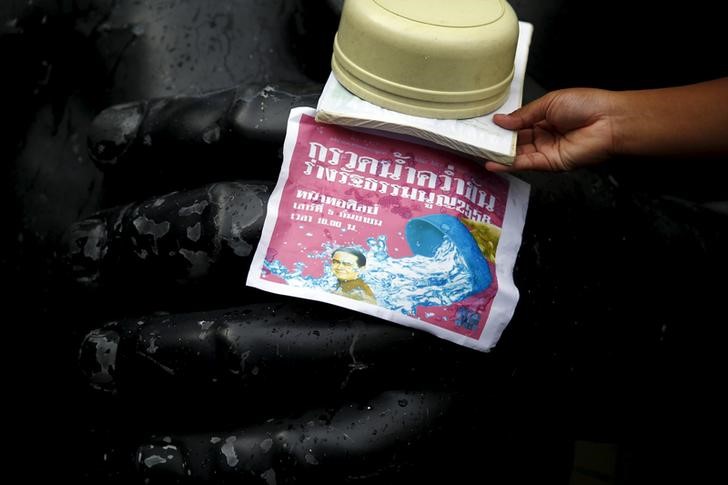By Orathai Sriring and Aukkarapon Niyomyat
BANGKOK (Reuters) - Thailand's military-appointed reform council rejected a new constitution in a vote on Sunday, a result that pushes back the junta's timeframe for an election to April 2017 at the earliest while a new charter is written.
The constitution, which would have been Thailand's 20th in 83 years of at times turbulent democracy, was rejected by 135 members of the National Reform Council (NRC) and approved by just 105. There were seven abstentions.
That was far short of the 124 needed to pass and go to a referendum that was slated for early January.
The shooting down of the charter drafted by a military-appointed panel will be cheered by political parties who derided it as an affront on democracy.
It had been expected to sail through the NRC vote, but discord surfaced in recent weeks and Thai media has reported intense lobbying and disagreement among members.
The biggest bone of contention was a late addition to the draft, the creation of a National Committee on Reform and Reconciliation Strategy. This committee would have been dominated by military, allowing it to exercise power over the executive and legislative branches in a vaguely defined "crisis" situation.
The NRC's rejection effectively prolongs the military's rule to 2017 because it means the whole process needs to start from scratch. Had it passed, an election was expected in the second half of 2016.
The government now has one month to appoint a committee that would have a 180 days to draft a new constitution that would go to a referendum some three months after, according to a timeframe of the process previously outlined by the generals.
That means an election would take place around April 2017.
The draft constitution had received a torrent of criticism from academics and media and has outraged politicians of the major parties, which have been sidelined since the military seized power in a May 2014 coup.
Critics called it a blueprint for a managed democracy that would weaken elected parliaments and governments and contained mechanisms that effectively gave the establishment and military the means to intervene in politics, either directly or by proxy through appointed lawmakers and panels.
The Puea Thai Party, ousted from office in the coup, was among parties which last week urged the NRC to reject the draft.

In a statement, it said the constitution would create more conflict and "allow a dictatorial regime to continue to suppress people without checks and balances."